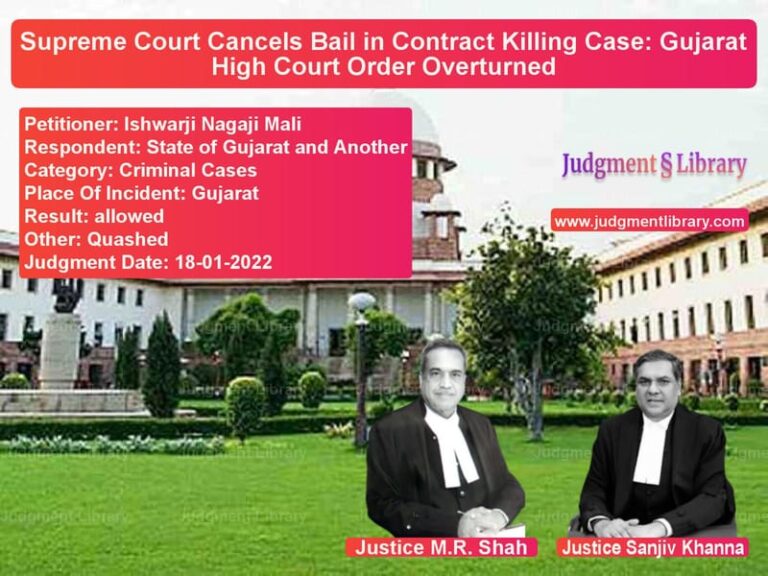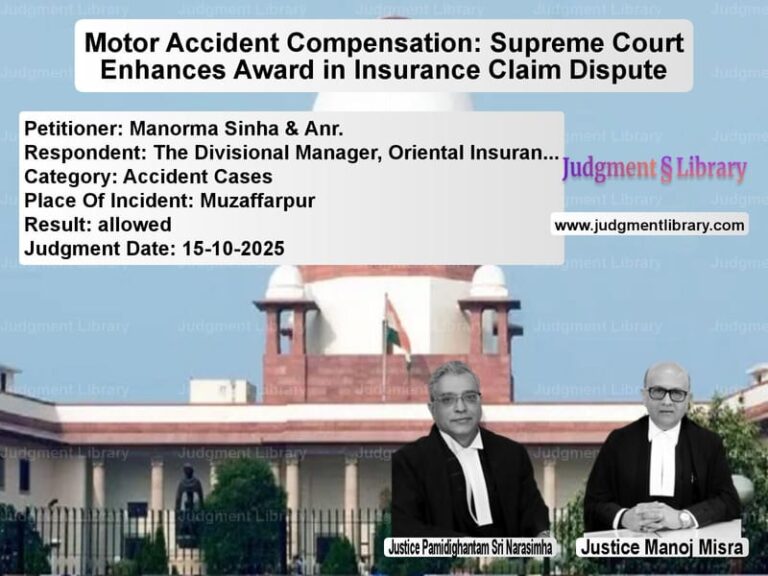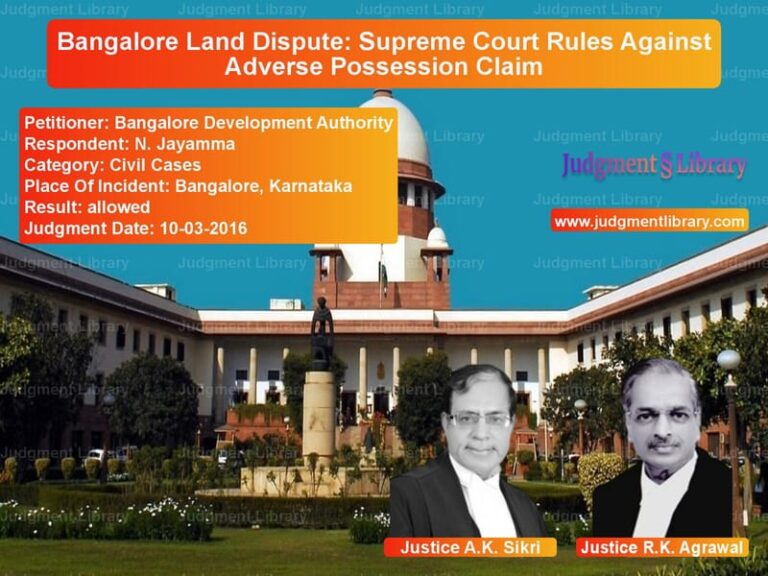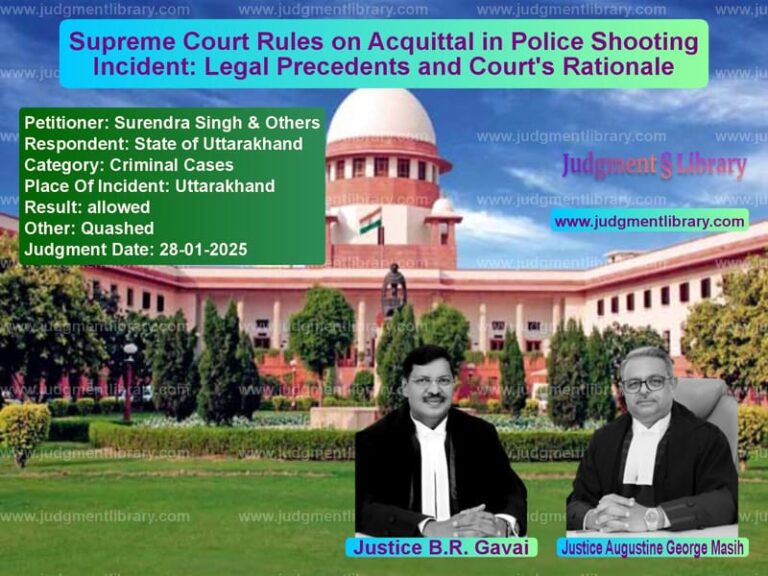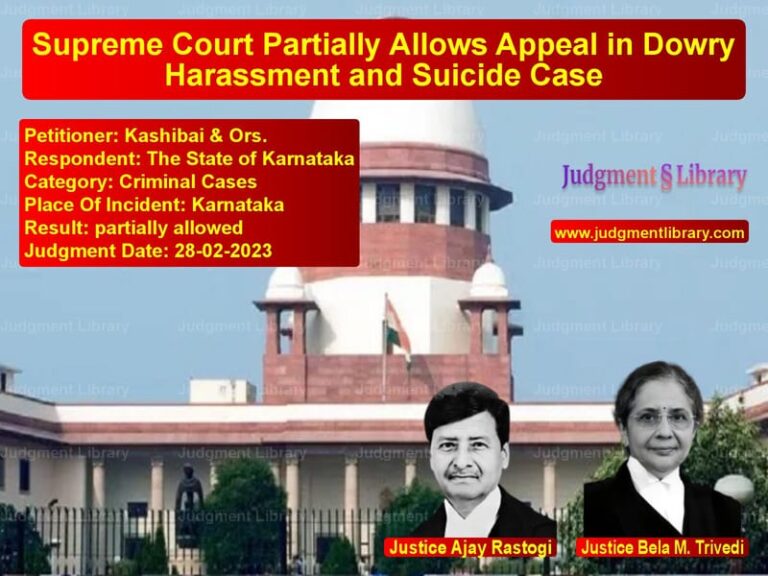Analysis of Section 80-O Deductions for Foreign Enterprises’ Service Charges
The case presented here addresses a significant issue regarding Section 80-O of the Income Tax Act, 1961, focusing on the eligibility of deductions for foreign service charges. The petitioners, M/s. Ramnath & Co. and M/s. Laxmi Agencies, sought deductions under this section for income received in foreign exchange for providing services to foreign buyers of marine products. The pivotal legal question raised in this case was whether these service charges qualify for deductions under Section 80-O, which allows for deductions in respect of income received from foreign enterprises for services that include the use of any technical or professional services, or intellectual property.
The petitioners’ claim for the deduction stems from their provision of services to foreign enterprises, which included tasks such as identifying reliable sources for seafood, negotiating prices, and providing market insights. However, the Assessing Officers denied the deduction, stating that the services were rendered in India, which, according to their interpretation, did not satisfy the requirements of Section 80-O. Section 80-O requires that services be rendered from India, but they must be used by the foreign enterprise for business operations outside India. The denial of this deduction caused significant financial implications for the petitioners.
In defense, the petitioners argued that while the services were provided from India, they were used by foreign entities in their business decisions, thus fulfilling the conditions for deduction under Section 80-O. They also cited various earlier case rulings and even a circular issued by the Central Board of Direct Taxes (CBDT) to support their claims. However, the Revenue contested the argument, maintaining that merely because the services were utilized by foreign entities does not automatically make them eligible for tax deductions, especially when the services were rendered within India. This was the main point of contention in the case.
The High Court’s ruling, which sided with the Revenue, emphasized that the petitioners’ services involved procuring agents for foreign enterprises rather than offering technical or professional services. The High Court further held that the activities did not fall under the type of services intended under Section 80-O, leading to the rejection of the petitioners’ claim for deductions. The High Court particularly focused on the nature of the services, determining that they did not possess the requisite technical or professional characteristics. The appellants thus filed an appeal before the Supreme Court, challenging this interpretation of Section 80-O.
The Supreme Court analyzed the case with reference to both the letter and spirit of Section 80-O and related case law. The main issue before the Court was whether the services rendered, though originating from India, could still qualify for deductions under Section 80-O, as they were provided to foreign enterprises. The Court had to interpret whether the distinction between services rendered “in India” versus “from India” played a pivotal role in the eligibility for deductions.
The petitioners presented the argument that, although the services were provided from India, they were effectively used by foreign enterprises in making business decisions, thus fulfilling the essential condition of Section 80-O. They contended that the services offered were technical in nature, particularly in identifying business opportunities, negotiating prices, and providing market insights, all of which are integral to the business decisions of foreign entities. Moreover, the petitioners emphasized that the foreign exchange received from these activities fulfilled the criteria outlined in the statute, as payments were made by foreign enterprises for services provided from India.
On the other hand, the Revenue, represented by the Income Tax Department, argued that the services rendered did not meet the technical or professional thresholds required under Section 80-O. They contended that the services rendered, although used by foreign entities, were not sufficiently technical to warrant the deduction under the provision. Additionally, the Revenue argued that services performed within India cannot be deemed eligible for deductions under Section 80-O, as the statute specifies that the services must be rendered to a foreign enterprise from India. The Revenue also pointed out that a broader interpretation of Section 80-O would lead to unintended financial concessions for a wide range of services provided from India.
The Supreme Court examined both the statutory framework and the specific nature of services claimed by the petitioners. The Court noted that Section 80-O is designed to encourage the provision of services that can benefit foreign enterprises and the national economy by allowing tax deductions for income generated from such services. However, the Court also emphasized that only services that are technical, professional, or involve intellectual property are eligible for deductions. The Court found that the services rendered by the petitioners, while beneficial to foreign enterprises, did not meet the requisite criteria of being technical or professional in nature, which would make them eligible for tax deductions under Section 80-O.
Ultimately, the Supreme Court upheld the High Court’s decision, affirming that the petitioners’ services did not qualify for the deductions under Section 80-O. The Court reasoned that although the services were rendered from India and utilized by foreign enterprises, they did not fall under the prescribed categories of technical, professional, or intellectual property services as outlined in Section 80-O. The Court’s decision thus reinforced the need for a strict interpretation of Section 80-O, ensuring that only services of the intended technical or professional nature qualify for the deductions.
This ruling has significant implications for businesses that seek to claim deductions under Section 80-O. The decision underscores the importance of the specific nature of the services rendered and clarifies that not all services provided to foreign enterprises from India will qualify for tax deductions under the provision. Businesses seeking to claim such deductions must ensure that their services meet the technical, professional, or intellectual property standards required by the statute. The ruling further emphasizes that tax laws should be interpreted in accordance with their intent and legislative framework, preventing wide interpretations that could lead to abuse of tax concessions.
In conclusion, the Supreme Court’s judgment in this case serves as an important reminder to businesses about the specific eligibility criteria for tax deductions under Section 80-O of the Income Tax Act. While the ruling is adverse to the petitioners, it clarifies the scope of the provision and sets a precedent for future claims under Section 80-O. This case highlights the complexities involved in interpreting tax laws and the need for businesses to ensure that their activities align with the statutory requirements for claiming deductions.
Petitioner Name: Ramnath & Co., M/s Laxmi Agencies.Respondent Name: Commissioner of Income Tax.Judgment By: Justice Dinesh Maheshwari, Justice A.M. Khanwilkar.Place Of Incident: India.Judgment Date: 05-06-2020.
Don’t miss out on the full details! Download the complete judgment in PDF format below and gain valuable insights instantly!
Download Judgment: Ramnath & Co., Ms L vs Commissioner of Inco Supreme Court of India Judgment Dated 05-06-2020.pdf
Direct Downlaod Judgment: Direct downlaod this Judgment
See all petitions in Income Tax Disputes
See all petitions in Tax Evasion Cases
See all petitions in Banking Regulations
See all petitions in GST Law
See all petitions in Judgment by Dinesh Maheshwari
See all petitions in Judgment by A M Khanwilkar
See all petitions in dismissed
See all petitions in supreme court of India judgments June 2020
See all petitions in 2020 judgments
See all posts in Taxation and Financial Cases Category
See all allowed petitions in Taxation and Financial Cases Category
See all Dismissed petitions in Taxation and Financial Cases Category
See all partially allowed petitions in Taxation and Financial Cases Category


